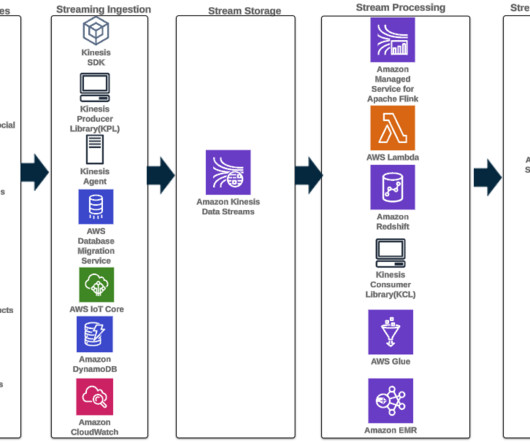Differentiating Between Data Lakes and Data Warehouses
Smart Data Collective
SEPTEMBER 23, 2020
While there is a lot of discussion about the merits of data warehouses, not enough discussion centers around data lakes. We talked about enterprise data warehouses in the past, so let’s contrast them with data lakes. Both data warehouses and data lakes are used when storing big data.














Let's personalize your content